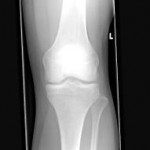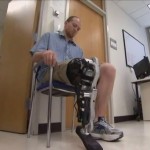
In 2003 a brand new virus named severe acute respiratory syndrome coronavirus (SARS-CoV) caused an outbreak of serious illness in Asia. The outbreak sickened over 8,000 people and killed over 700. Many of the infected were healthcare workers.
In February of last year a similar but distinct virus was identified in Saudi Arabia, the Middle East respiratory syndrome coronavirus (MERS-CoV). Since that time about 200 people have been sickened by MERS, all linked to six countries in or near the...
More









 Doctors spend a lot of time recommending diet and exercise for weight loss. If you’re my patient, unless you’re quite fit, you've probably heard me ask you to exercise more and eat less. There is good reason for this. Many short term studies hav...
Doctors spend a lot of time recommending diet and exercise for weight loss. If you’re my patient, unless you’re quite fit, you've probably heard me ask you to exercise more and eat less. There is good reason for this. Many short term studies hav... 